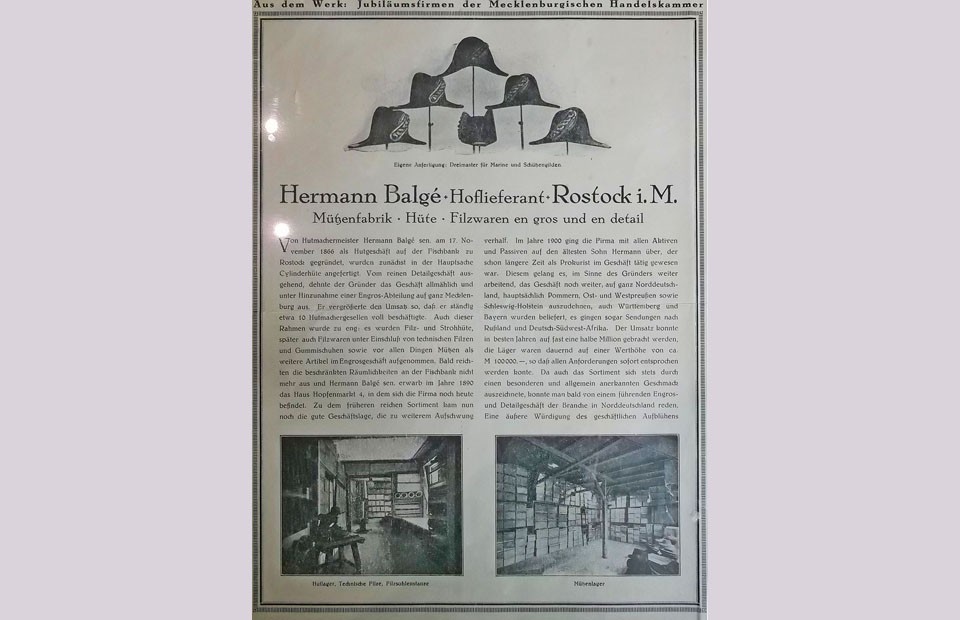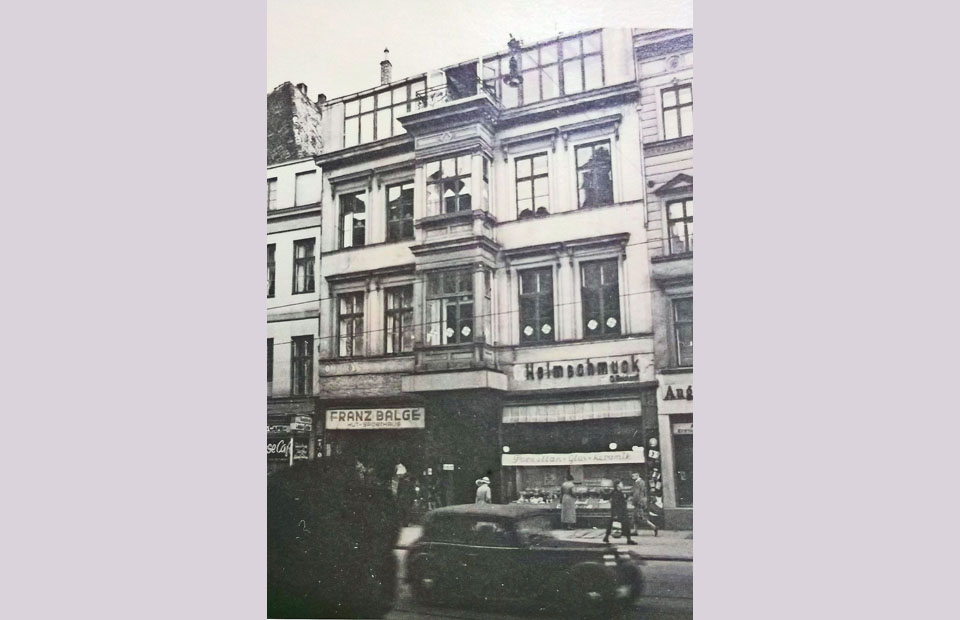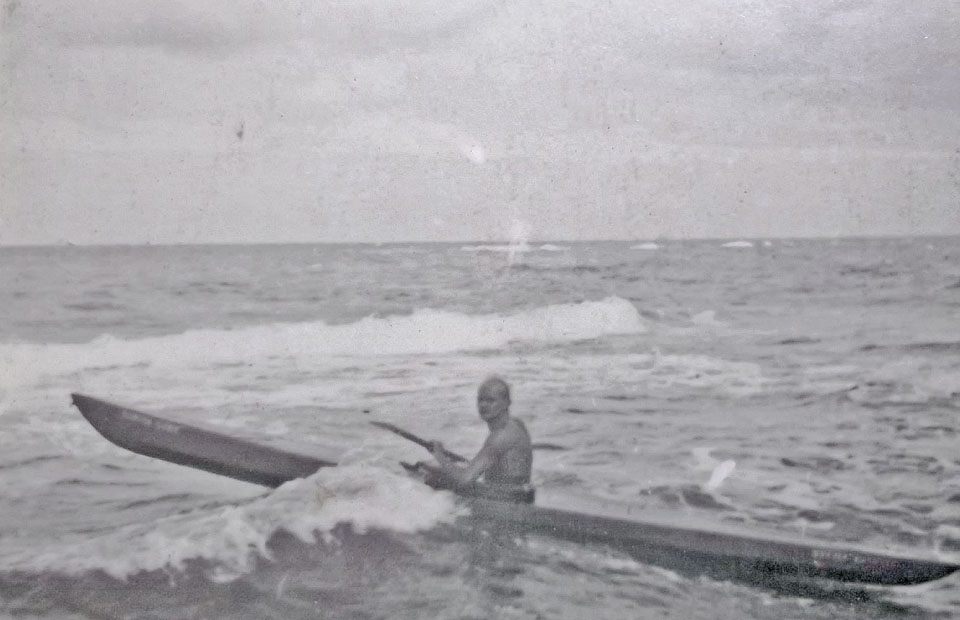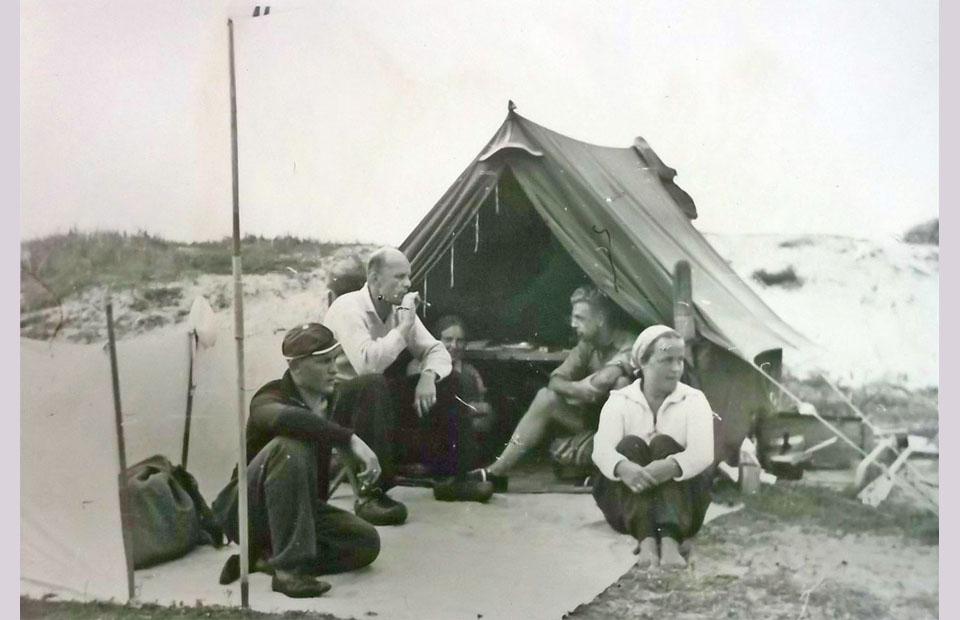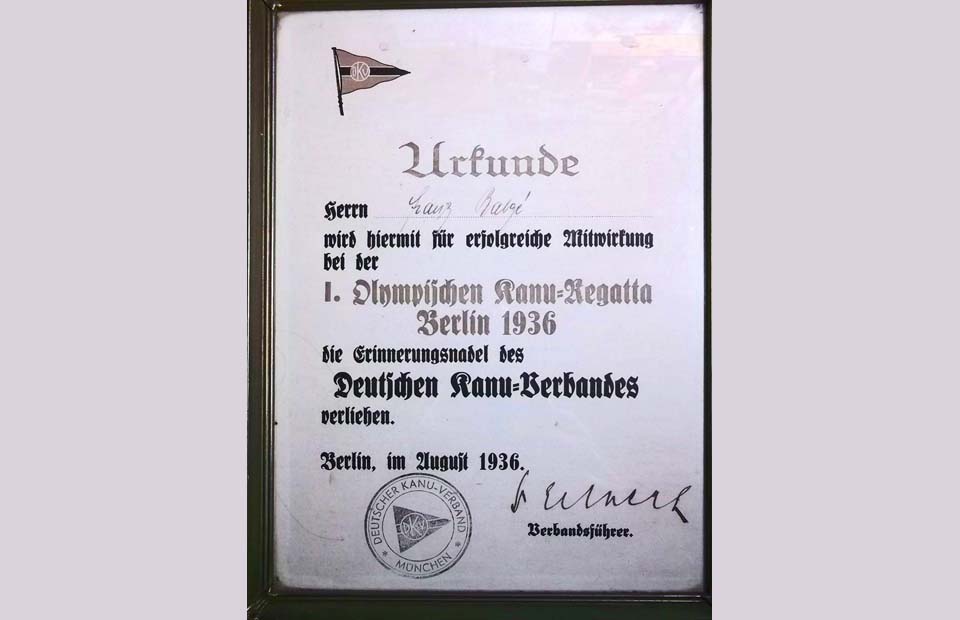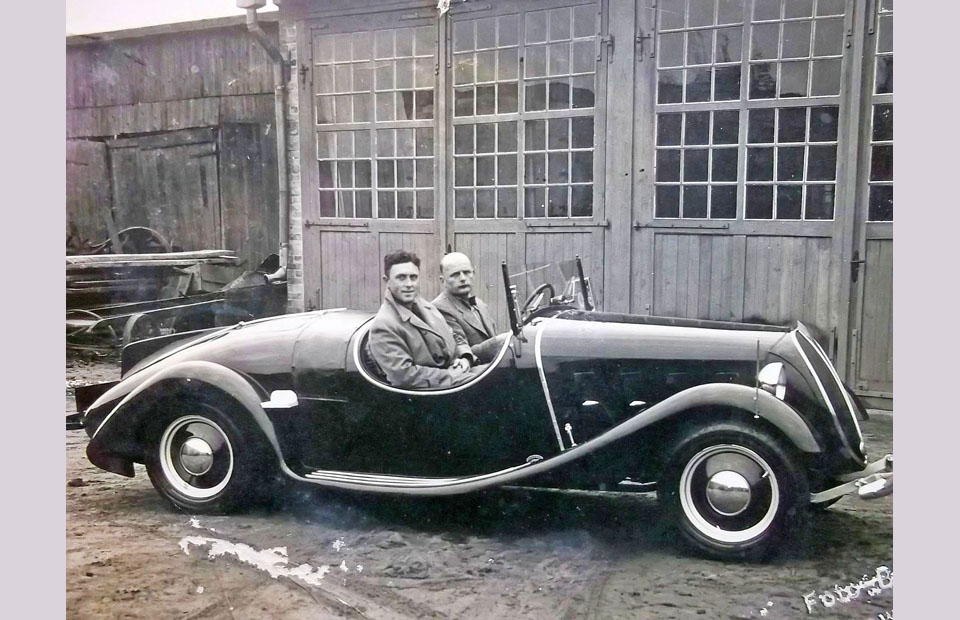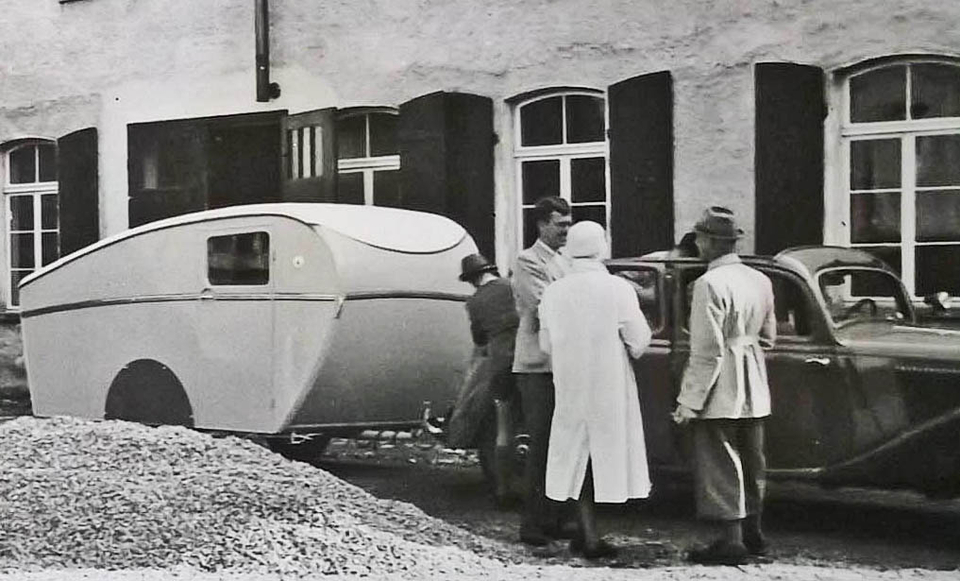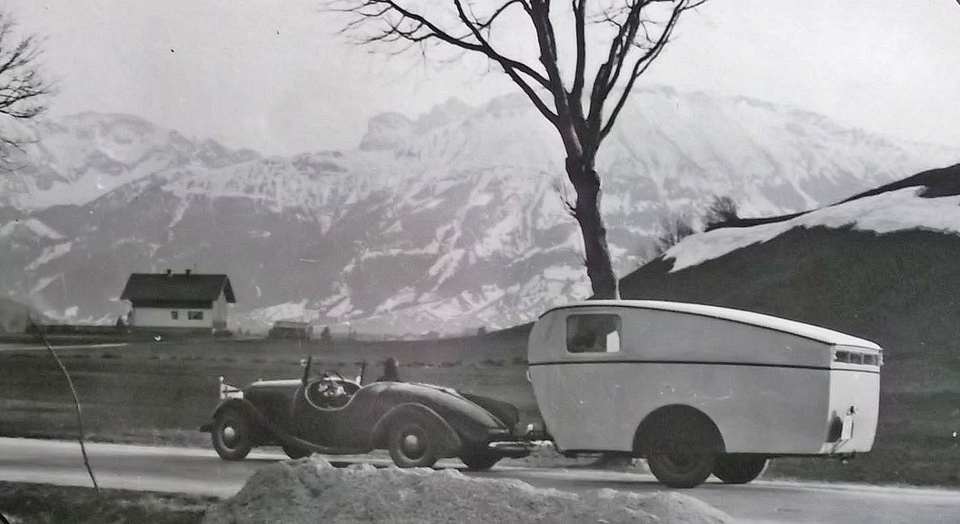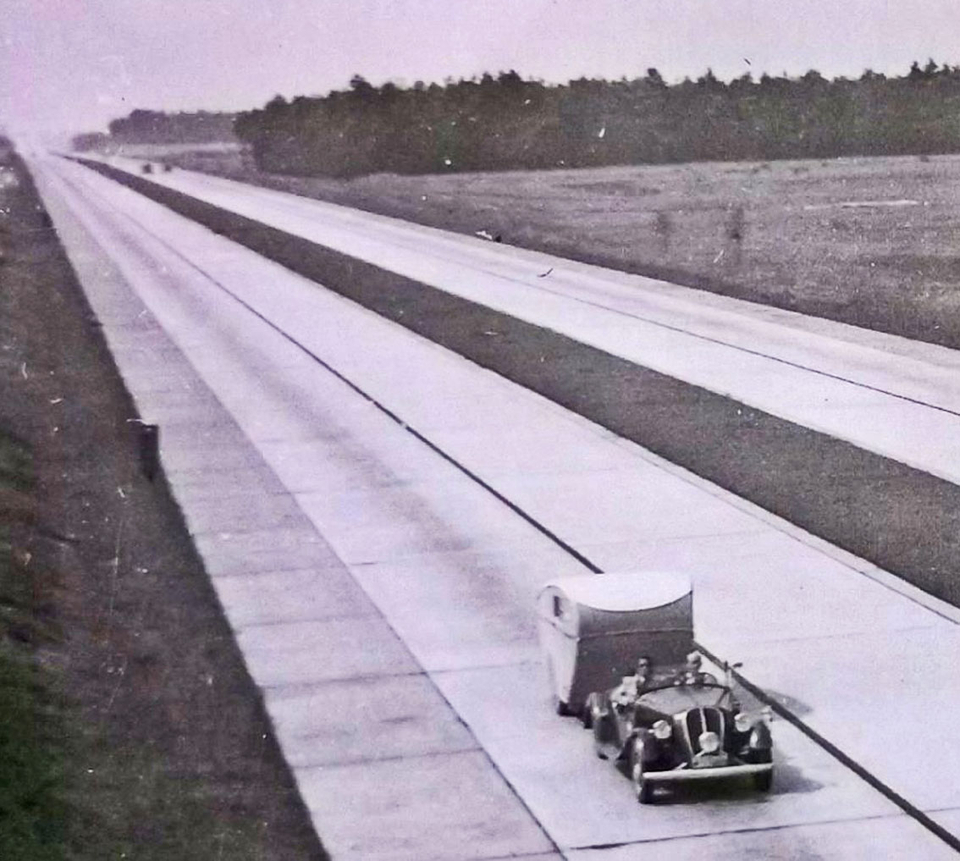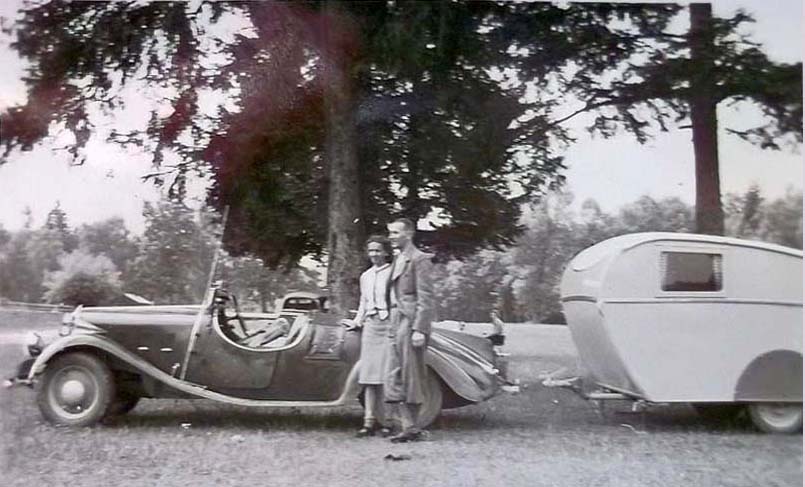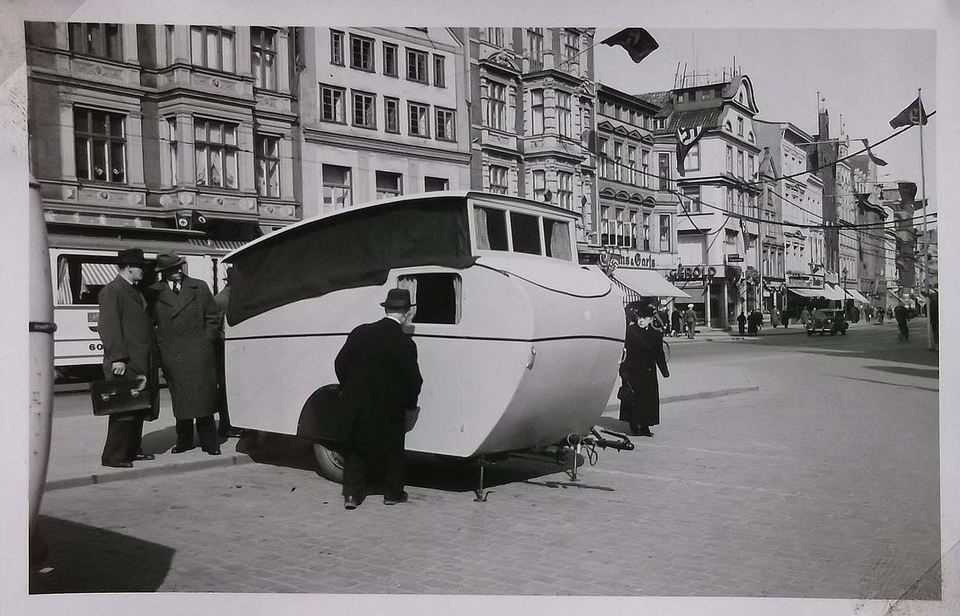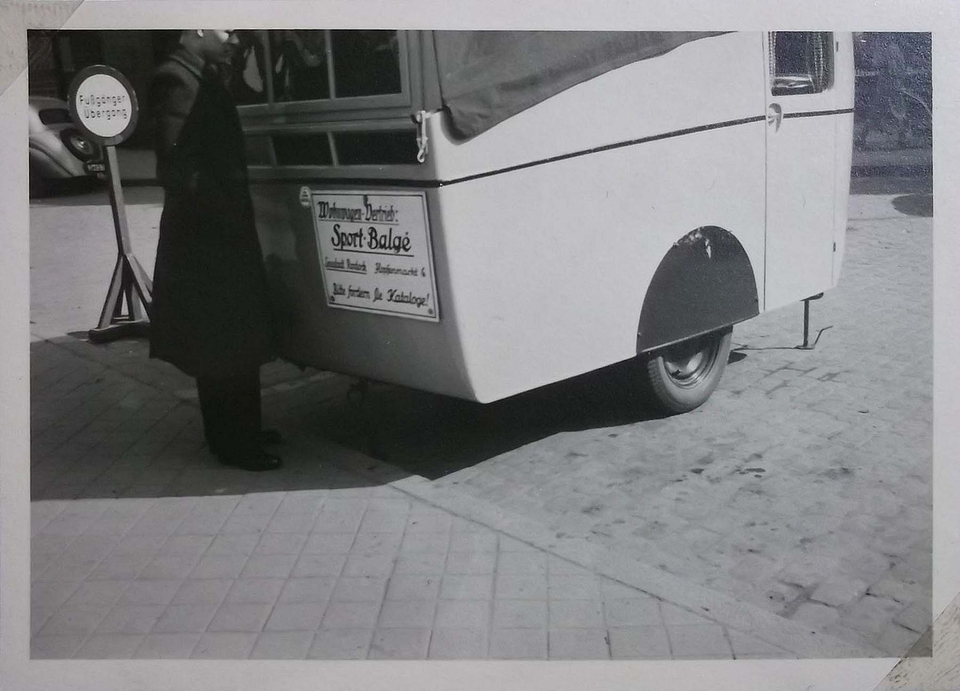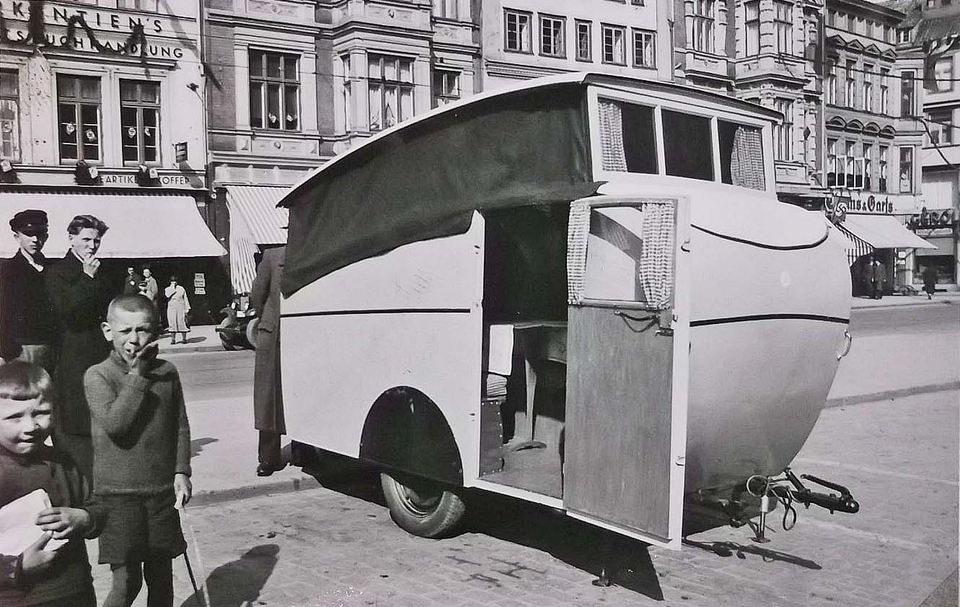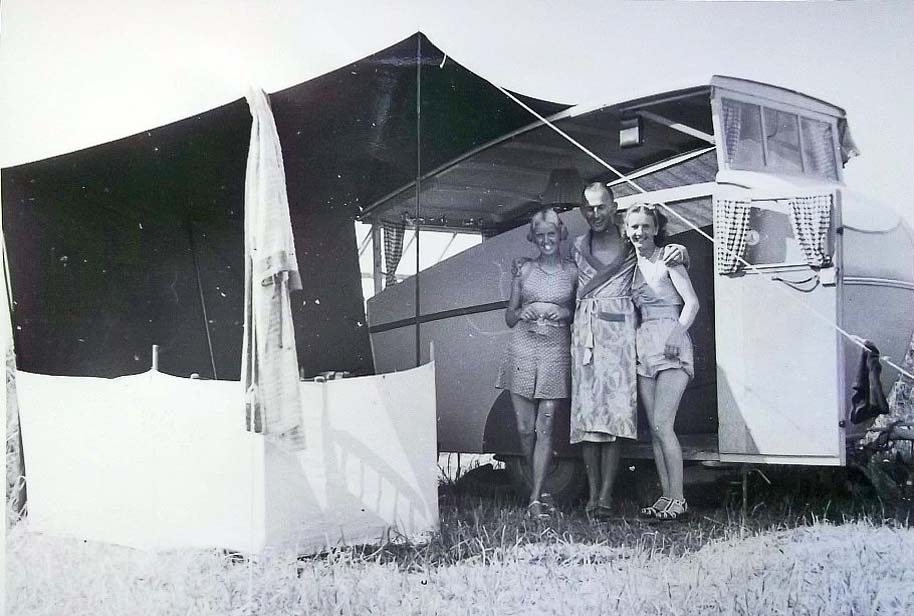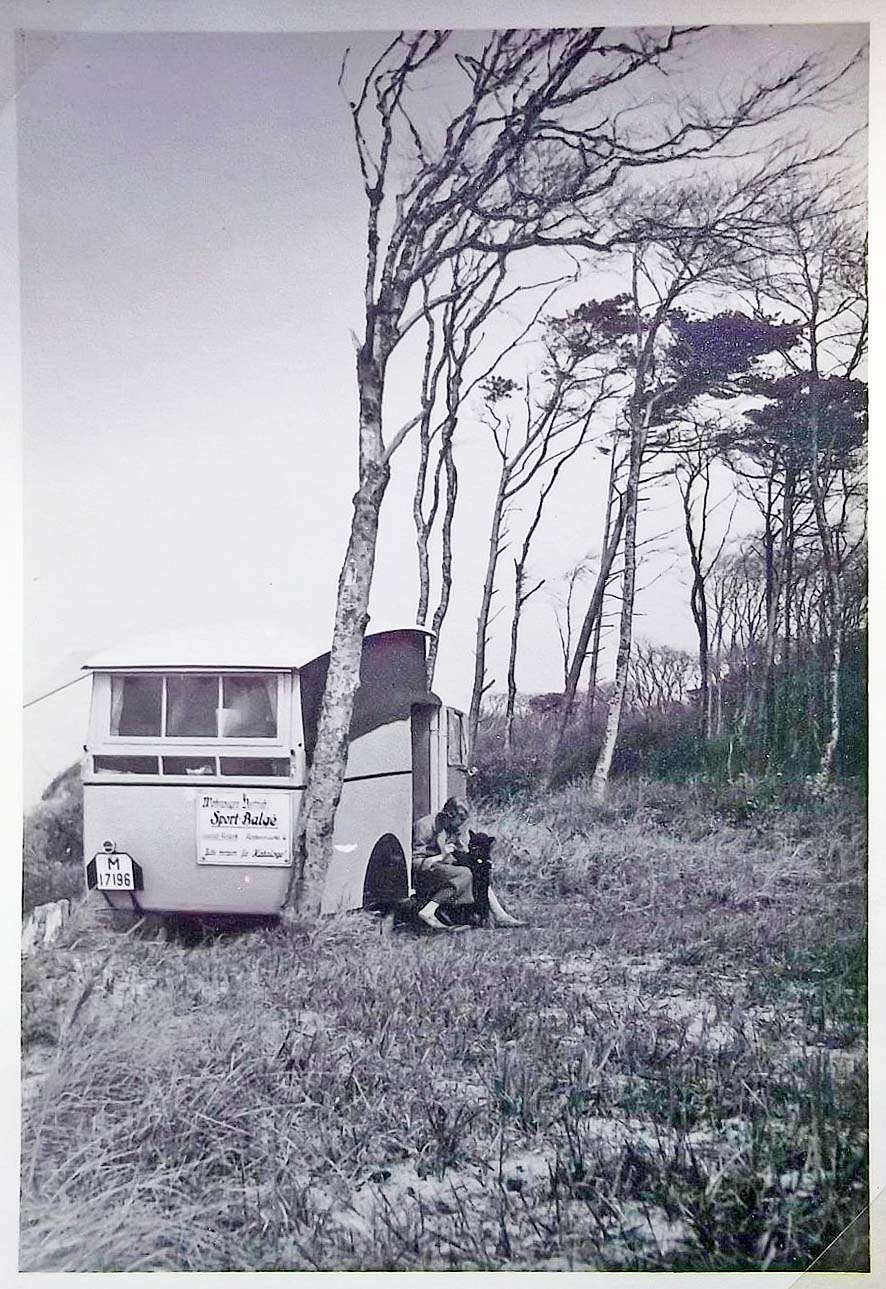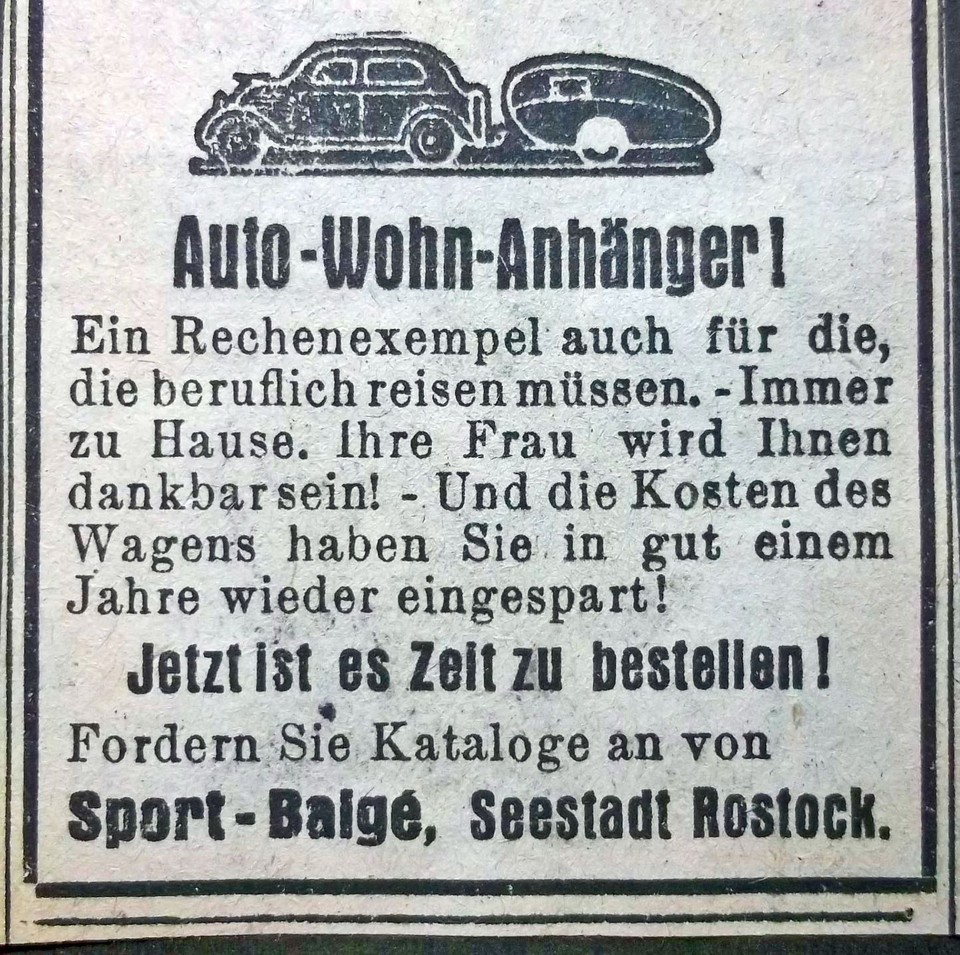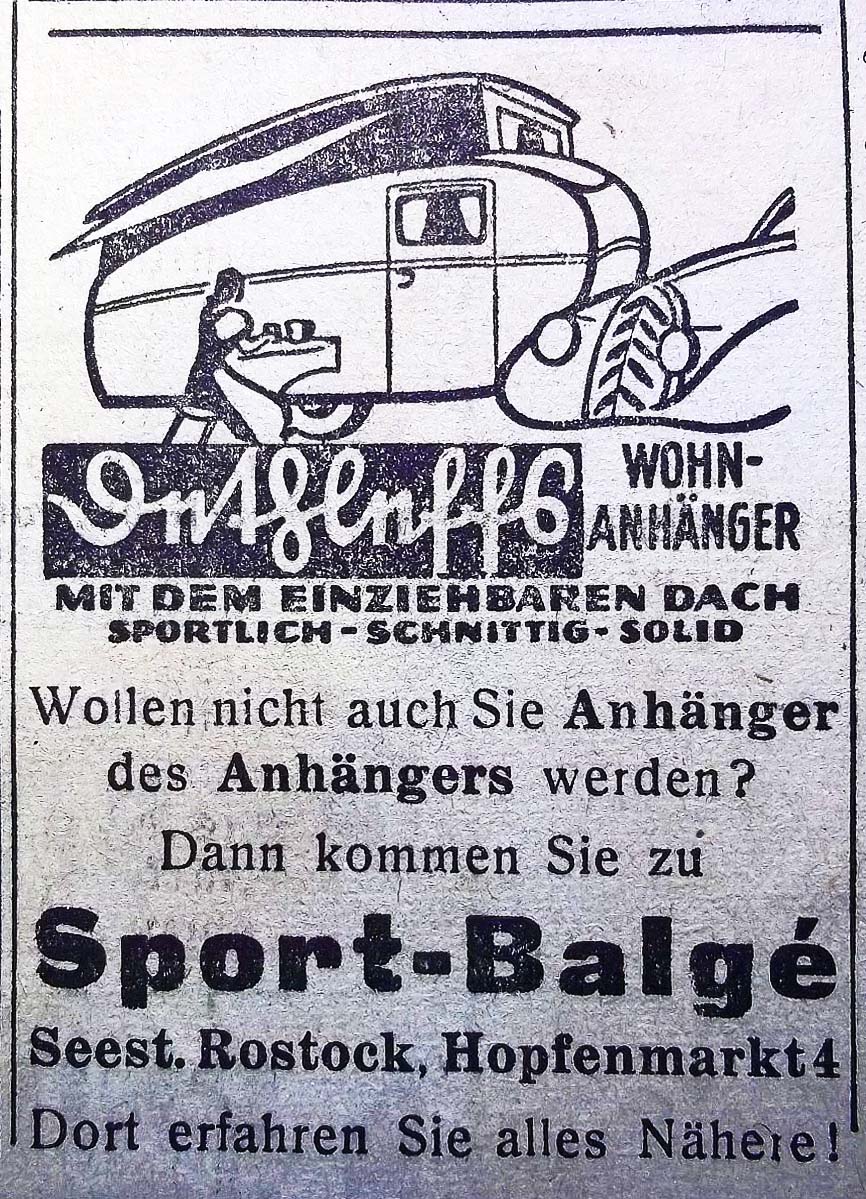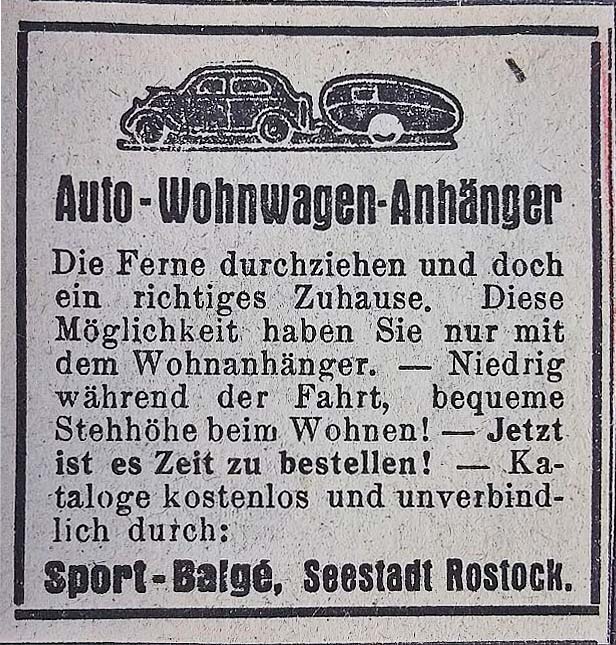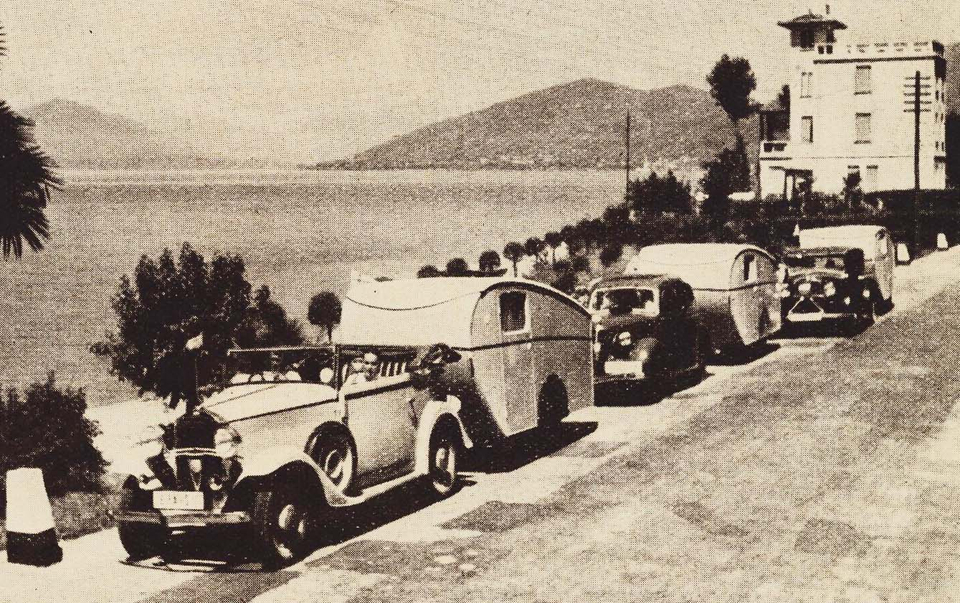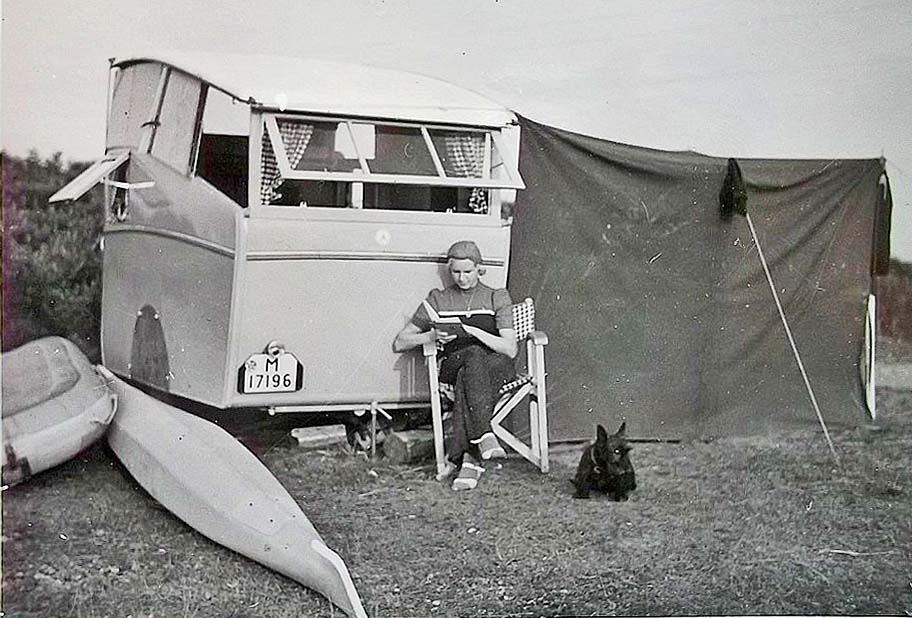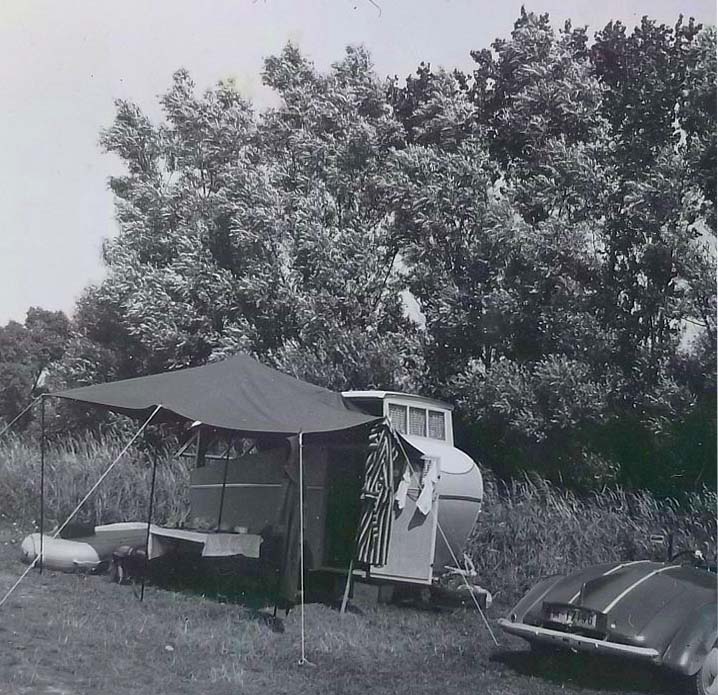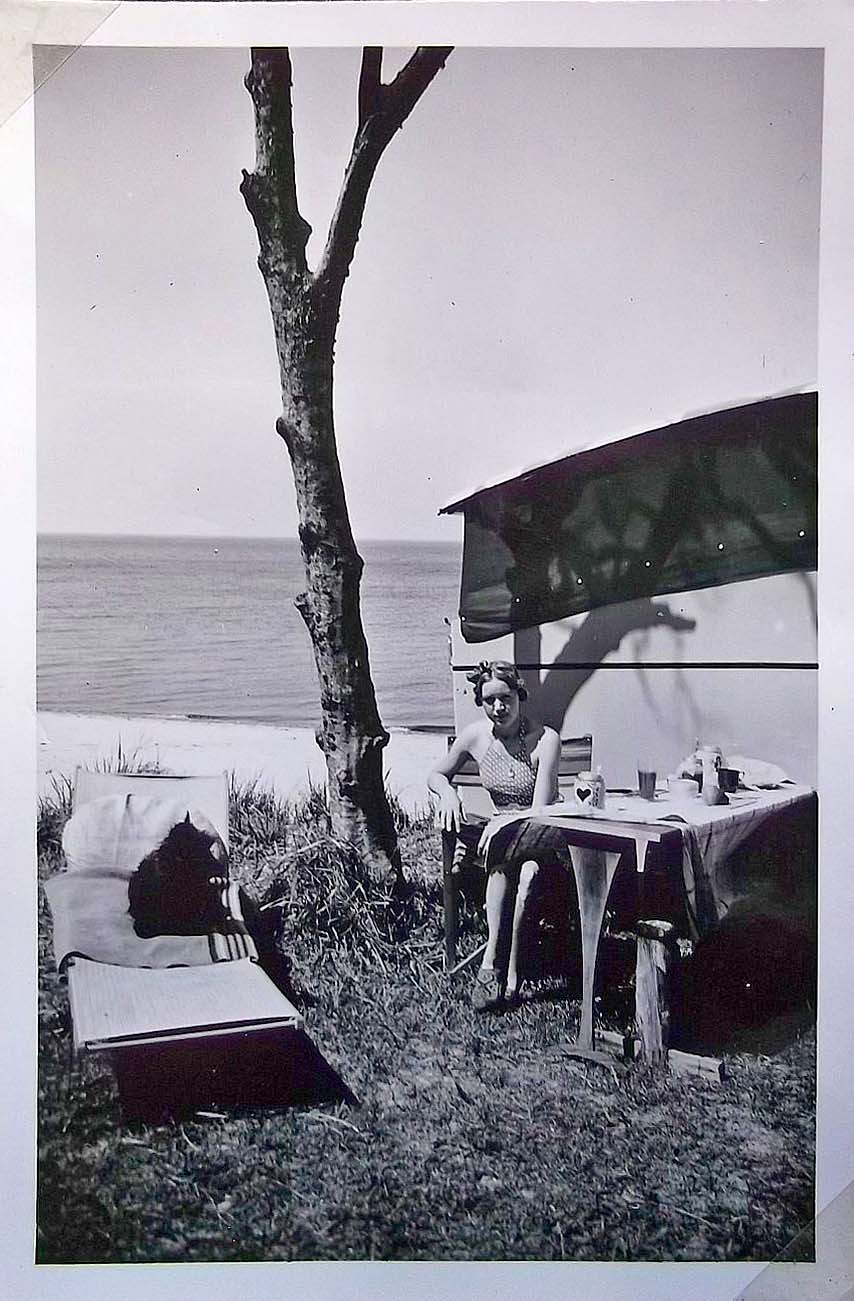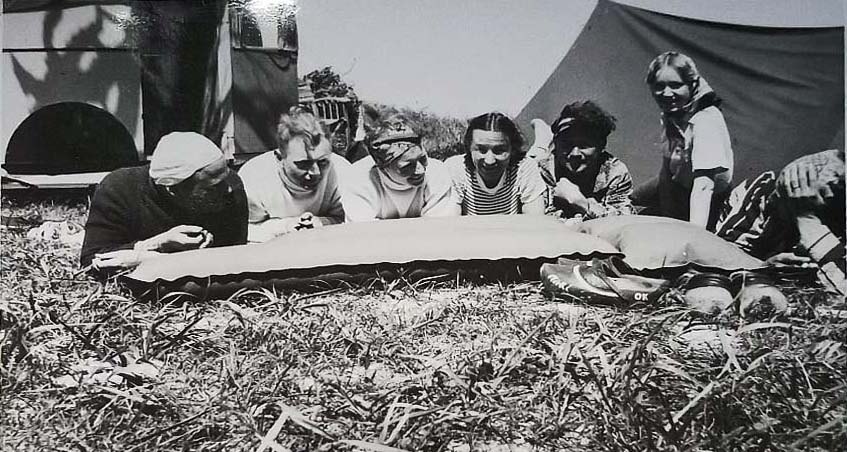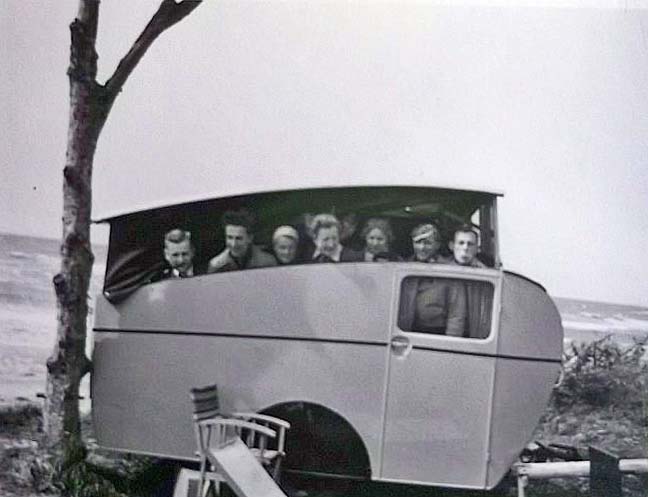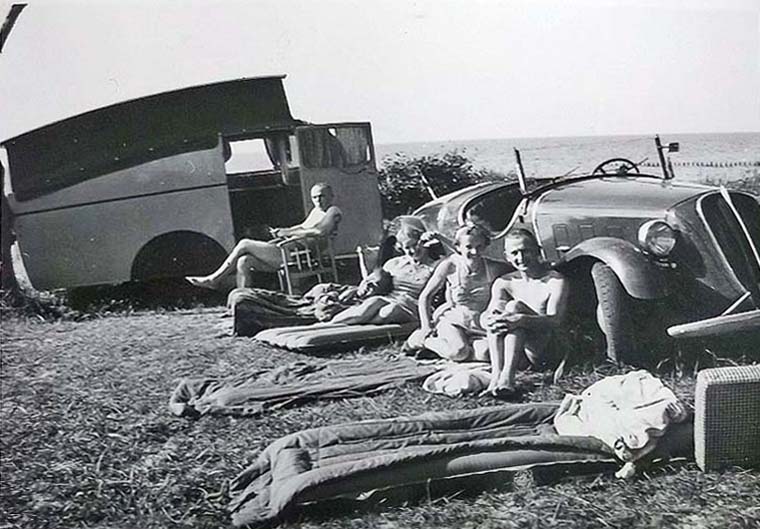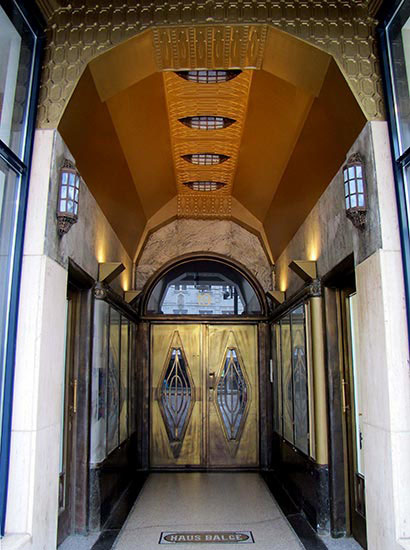- Home
- Works in Exhibitions
- Fridel Dethleffs-Edelmann
- Ursula Dethleffs
- Treasures from the Collection
- Collection of art
- Watercolor
- Tapestry
- Collage
- Gouache
- Reverse glass painting
- Glass church window
- Glass Mosaic
- Ceramic Plate
- Ceramic Picture
- Ceramic Relief
- Ceramic Sculpture
- Mixed media
- Object Art Relief
- Object Art Sculpture
- Oil Paintings
- Repro Lithography
- Repro Glass Lithography
- Repro Woodcut
- Repro Linocut
- Repro Monotype Printing
- Repro Etching
- Tempera
- Drawing Brush
- Drawing Brush Repro
- Drawing Ink and Pen
- Drawing Crayon
- Drawing pencil and crayon
- Exhibition by Period
- FDE: Selfportraits
- Introduction to the work of Ursula Dethleffs
- The collage as a total artwork
- Biography
- Dethleffs Gallery
einzigartig
Fridel Dethleffs-Edelmann
Ursula Dethleffs
Fridel Dethleffs-Edelmann
Ursula Dethleffs


1937 – The first Dethleffs in Rostock
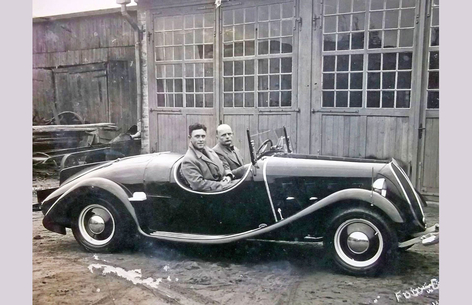
My grandfather, Franz Balge was born in 1903 as the son of a merchant family in Rostock. Once the elder brother had been killed in World War I, he took over the family business as a matter of course
He was trained as a merchant in Rostock. After this first professional years joined at a business friend of the family in Munich. 1934 Franz Balge returned to Rostock.
An avid sportsman and successful canoeist was clear to him that he will extend the inherited parental hat, hats and fur products wholesale business. His new addition was: retail and wholesale sporting goods. The new sports shop quickly grew so strong that the previous success numbers were far outstripped.
During this time, the first young Germans were mobile. Franz Balgè also sought outside the city nature. At first he camped outdoors with his friends. Then he remembered: Even in his time in Munich he had discovered a caravan - the "little Dethleffs". Thus one would be free in nature, away from the wet soil and with a lot more loading space than before for canoeists. First contacts with the caravan pioneer Arist Dethleffs from Allgäu he had tied from Munich. As an entrepreneur, he toyed with the idea, in Rostock caravan for sale: The luxury of the caravan could be a beneficial business.
1937 acquired Franz Balgè at Arist Dethleffs his "Kleinen Dethleffs". The caravan with a comfortable lifting roof had to be picked up only in Isny (Allgäu). There went with his own convertible for a half-day trip almost 1,000 km from the extreme north to the deep south of Germany. The new Reichsautobahn was a dream - almost no cars. But before and after it went over bumpy roads.
On the way he stayed still at the hotel. The personal takeover of the caravan in Isny offered Franz Balge the chance to meet the estimated caravan pioneer Arist Dethleffs and his family. In addition he could visit with a tour of how the caravan in the build-up phase of production were mostly produced by hand. For the later service was the best teaching. On the return trip - and during stays in Baden-Württemberg and Bavaria - he was finally able to cook, eat and sleep in the new trailer. He enjoyed for the first time his own house on wheels.
Back in Rostock the new caravan was presented near the Balgè commercial building on Hopfenmarkt: the place was ideal because located in the center of Rostock. Of course, the curious first did not know what was to be the vehicle - perhaps a gypsy caravan? That's why it was good that you could look through the window at the back of the caravan. For this, the lifting roof perched. Very courageous interested also the door of the caravan has been opened: they were able to admire the kitchen in the bow and the living room at the rear. Most the bunk bed for toddlers surprised at the rear.
At the beginning of the "Small Dethleffs" was visited by sightseers. Later, the first buyer came. Until the beginning of the war Franz Balgè could order several caravans from Dethleffs production and deliver to buyers in Mecklenburg. The caravan was the single and most important exhibit for sale. During leisure Franz Balgè drove but with his wife and the "little Dethleffs" out into nature. Always there was the black Mongrel, the darling of the family. Together they visited the most beautiful places in Mecklenburg, especially on the Baltic Sea.
An avid canoeists went on the weekends with friends from the jointly established Rostock Canoe Club (Ostsee Kanuten = OK) to the nearby Baltic Sea. The caravan served not only as a comfortable holiday home, but also as a trailer for a lot of water sports equipment. Car and caravan were still require approval drive almost to the beach - if local circumstances so permitted. At that time, the freedom for the caravanning was really almost limitless
With the outbreak of war, unfortunately, quickly ended the fledgling caravan sales in Rostock. Franz Balgè itself was drafted for military service and confiscated the caravan for war uses. The post-war years to the beginning of the division of Germany did not offer any possibility of including the trailer sale in Rostock again. Under Russian occupation took the social conditions in East Germany, in the wake of the nationalization of businesses, a development that forced in the following years, many entrepreneurs and ultimately Franz Balgè to give up his business.
From lawyer Morten Weise - grandson of Franz Balgè
(To contact the authors: weisemorten<script type="text/javascript">document.write('@');</script>freenet<script type="text/javascript">document.write('.');</script>de)
